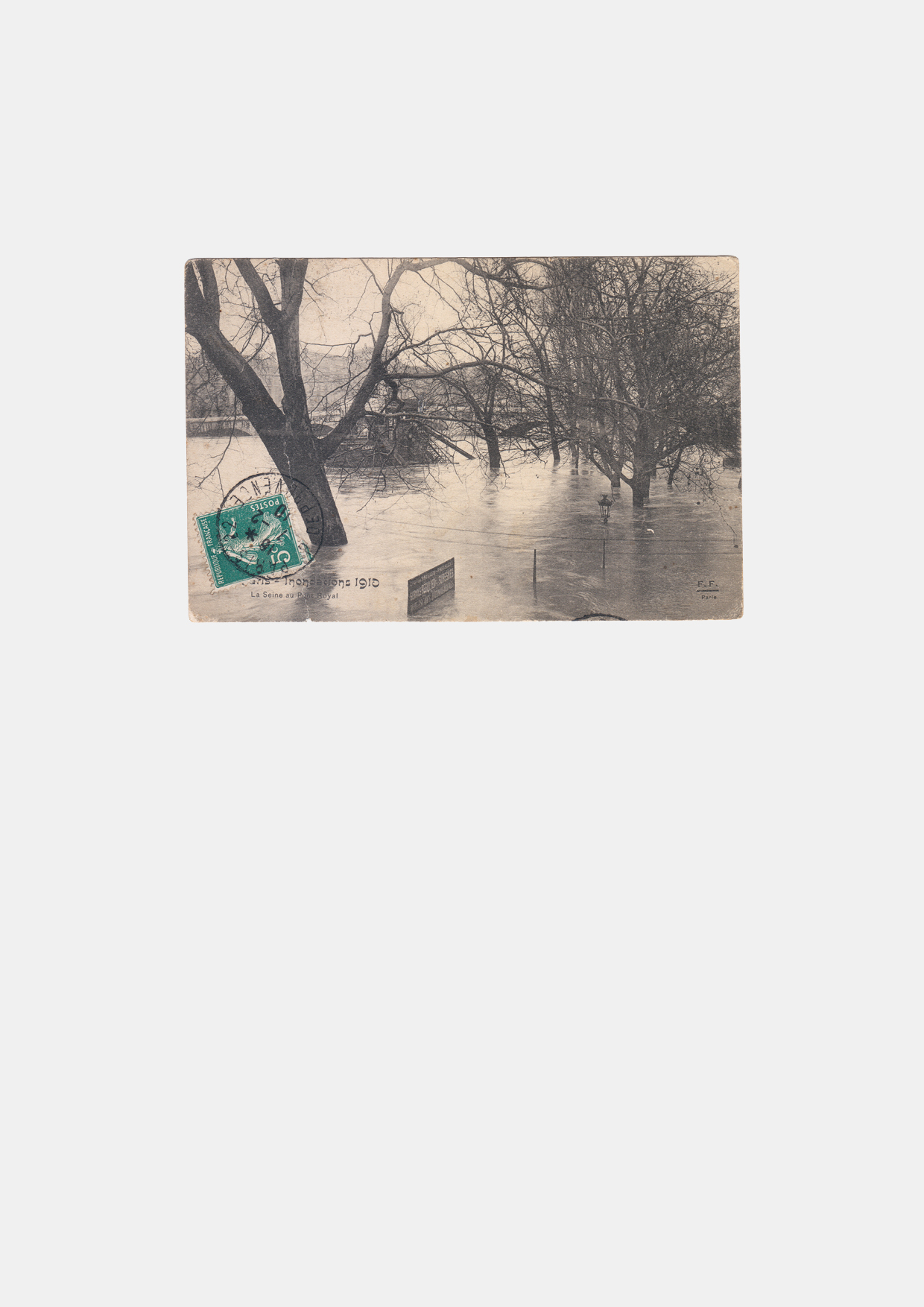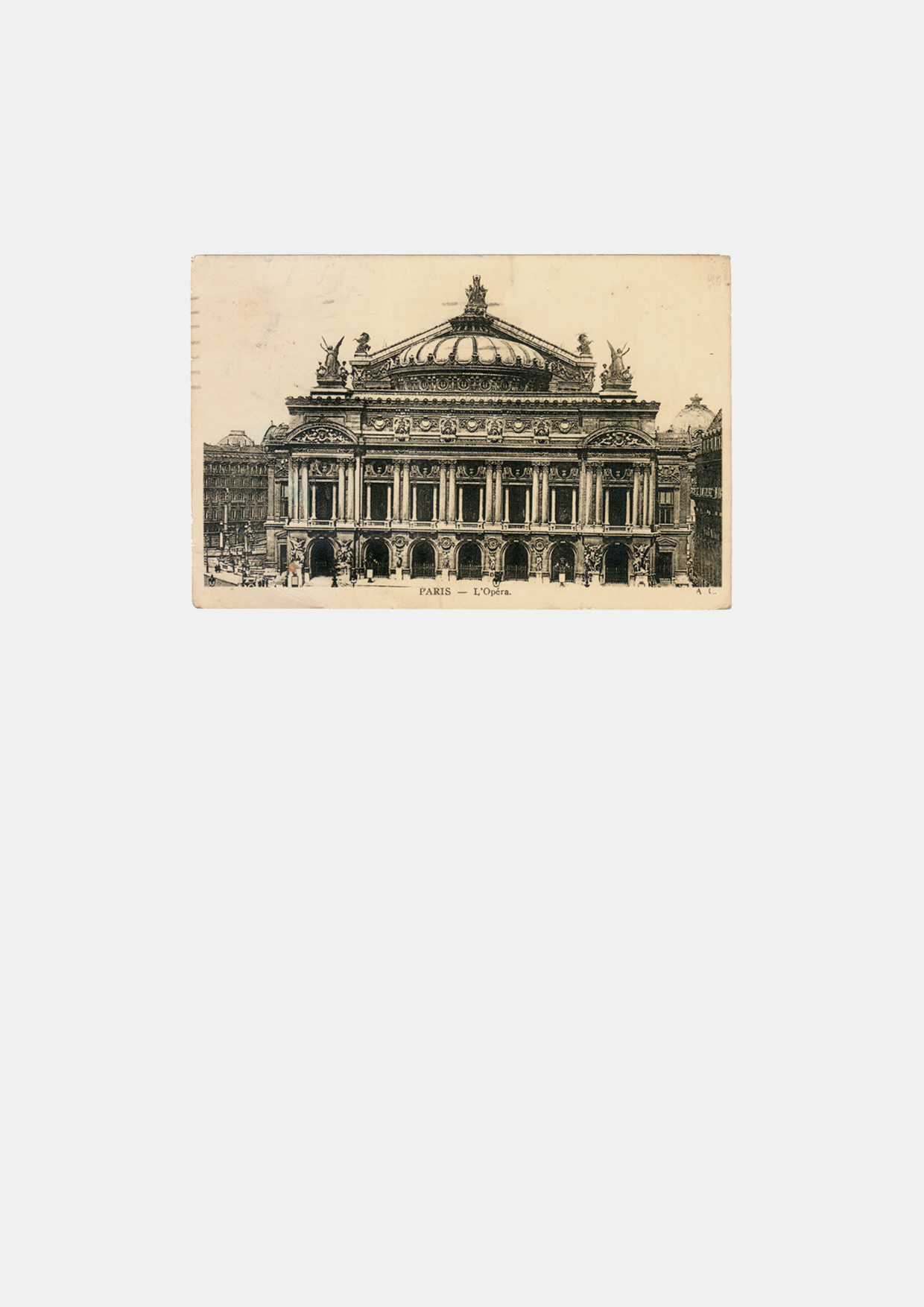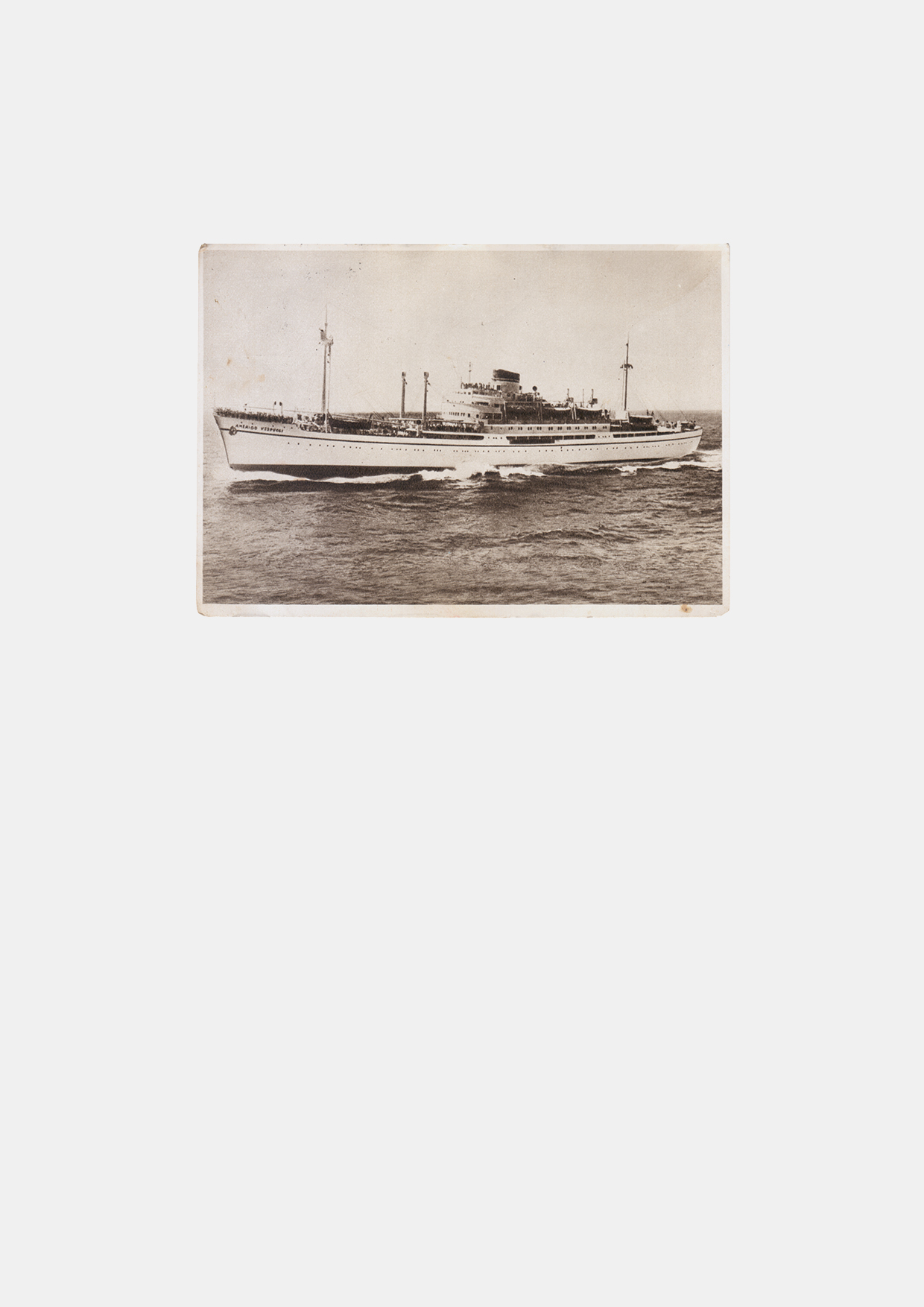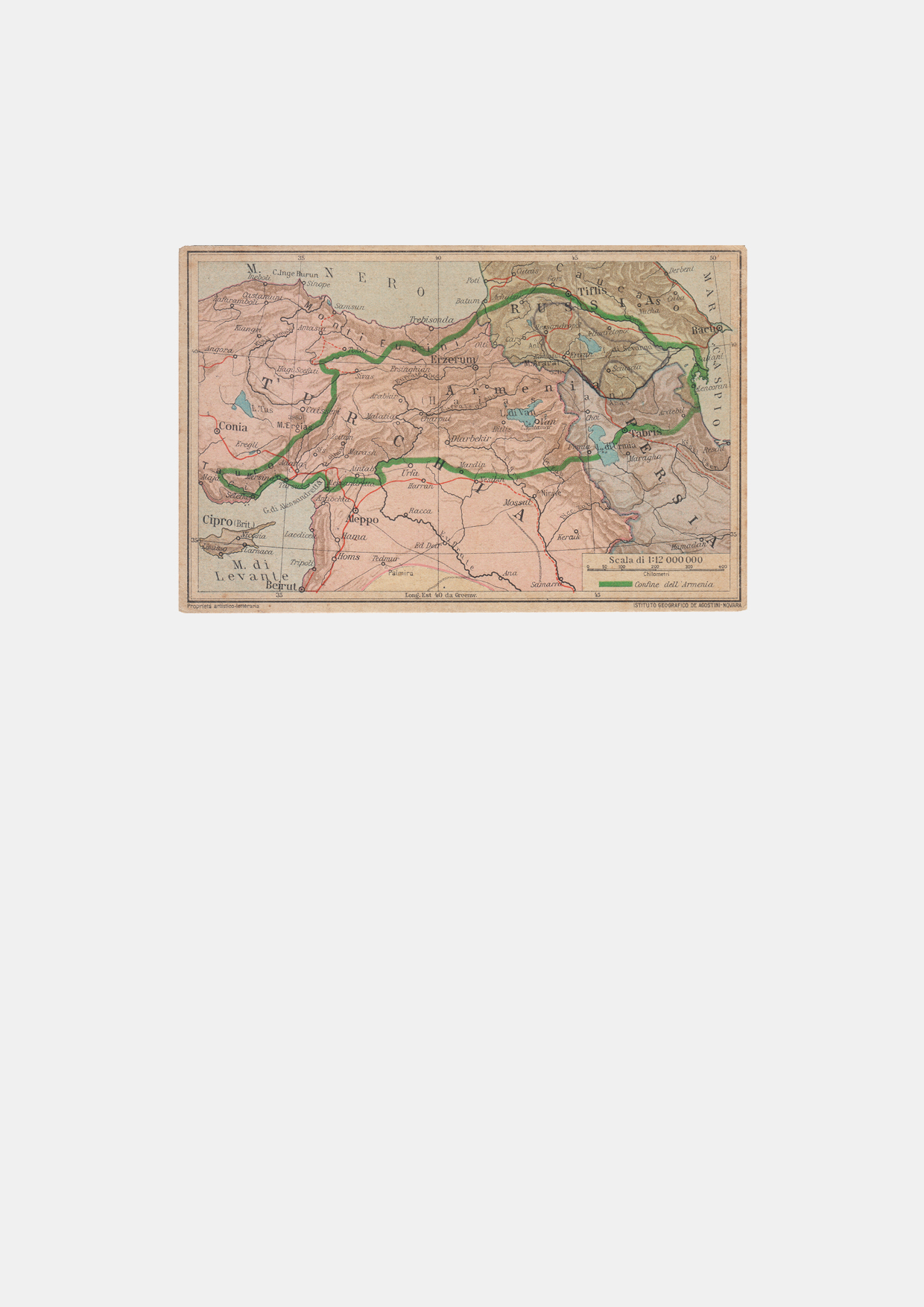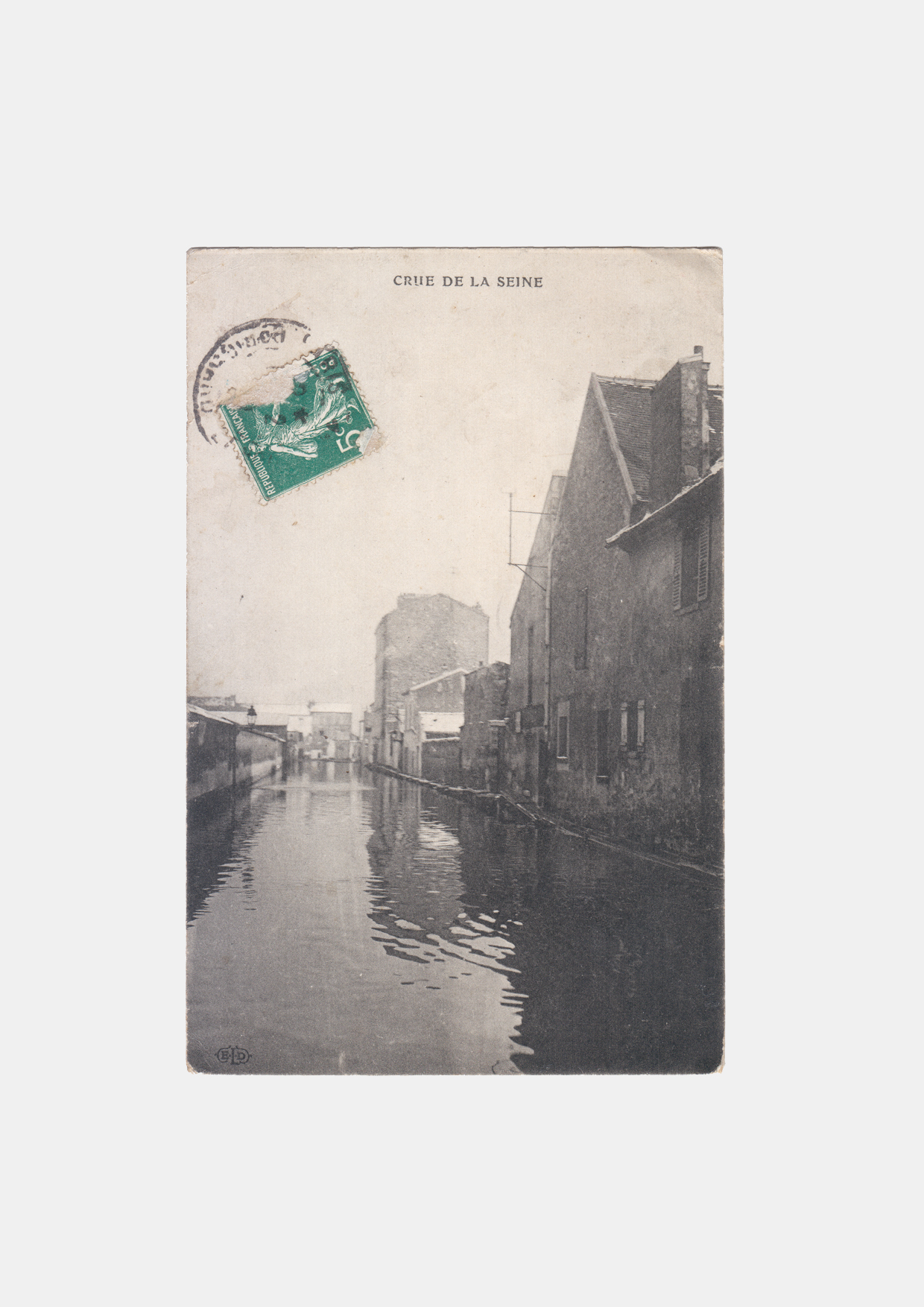Altogather Elsewhere
My body is on this ship, but my heart is with you, on the land
2014
[ Postcard, photography, artist book ]
A few years ago, I discovered a shoebox filled with postcards in my grandmother's seaside home, dating from the early 1900s to 1960. These postcards form a vital connection between my great-grandparents and various previously unknown members of my family, holding within them the potential to uncover hidden narratives. From the moment I laid eyes on them, I was captivated by the visual beauty and fragility of these postcards, each one offering a tangible link to history. The stunning illustrations, high-quality paper, and nostalgic scent of the yellowed cards drew me in, inspiring me to explore the messages on their backs. Using an enlarging lens and a high-resolution scanner, I delved into the text, revealing an unspoken, fragmented narrative of my family—one that encompasses themes of migration, the refugee experience, and the impact of war. This exploration transformed these historical subjects into deeply personal aspects of my identity. Over the past seven years, I have diligently interviewed family members about the people connected to these postcards. However, many prefer to respect the family's silence, which has made this journey challenging. As a result, my understanding has largely relied on the contents of the postcards themselves. These cards were sent from diverse locations during an era when travel was not commonplace. Many originated from migrant ships crossing the Atlantic, while others came from Armenia during the genocide, Paris during the rise of Nazism, and Venice in 1902 after the St. Mark’s bell tower collapsed. Each postcard provides rich insights into significant moments in history. What distinguishes these postcards from the typical holiday cards of the pre-digital era—often showcasing idyllic vacation spots—is the depth of their narratives. The craftsmanship is superb, and the landscapes they depict resonate with historical significance. The messages within are profoundly emotional and personal.
One postcard poignantly states: "We desire to see you again in our Italy, before I die... It is useless to talk about what is happening in Paris; all the newspapers cover it, and what we thought was impossible is now real..." (Paris, 1938).
Another expresses: "My body is on this ship, but my heart is with you on the land." The second postcard was sent by my grandfather's aunt, whose husband had emigrated from Armenia to Milan before becoming a political refugee in Caracas.
These heartfelt messages illuminate the profound connections and struggles within my family's history, allowing me to grasp the challenges they faced during turbulent times. Each postcard not only preserves cherished memories but also invites a deeper reflection on the resilience and legacy of my ancestors, compelling me to honor and share their stories.
